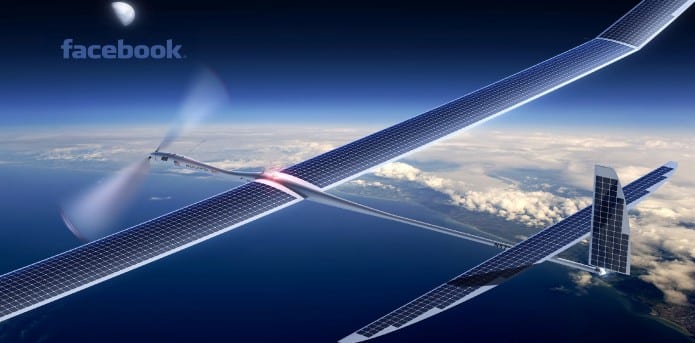Facebook to begin test flights of the solar-powered giant internet drone later this year
The social networking giant, Facebook on Thursday announced that it has completed building its first full-scale solar powered drone with a a wingspan as large as a Boeing 737 and will begin testing in the United States later this year. The drones which are a part of a program called Aquila uses laser technology to deliver internet connectivity to remote areas of the world from the sky.
Built over a period of 14 months and weighing about 880 pounds (400 kg), the drone is designed to fly over a remote region for up to three months independently, says Yael Maguire, the company’s Engineering Director of Connectivity. The drone is a high-altitude, long-endurance airplane that will provide internet to people from an altitude of 60,000 feet to 90,000 feet (20 and 30 km), above the altitude of commercial airplanes, so that it remains unaffected by changes in weather. Helium balloons will be attached to the plane and float it up into the air. The drones have a wingspan of 42 meters (46 yards).
“Our mission is to connect everybody in the world,” said Jay Parikh, Vice President of Engineering. “This is going to be a great opportunity for us to motivate the industry to move faster on this technology.”
For the first time, a full-size model has been readied for testing, even though smaller scale version have been flown before. Facebook has a team working with policymakers to help set guidelines.
Parikh said that as the planes must be in continuous motion always to stay aloft, they will circle a three-km (two-mile) radius. The drones will float up to 90,000 feet (30 km) during the day, while at night they will come down to 60,000 feet (20 km) to save energy. The drones are targeted to provide internet connectivity to about 10 percent of the world population that live in remote areas.
Similar initiatives have been taken up by Google, who is experimenting with high-altitude balloons as well as satellites and drones. On the other hand, Microsoft has financed a project that will send internet signals over television airwaves that are not used.
Facebook too a year ago had launched Internet.org, an initiative that works with wireless carriers to provide limited mobile internet service at no cost, to the two-thirds of the world population that do not have a reliable connection.
Parikh said Facebook has no plans to sell the drones but instead will use them to expand internet access.
Both tech giants, Facebook and Google are in race to provide Internet to the remotest corners of the world by any means possible. Google has just signed a deal with the Sri Lankan government for its Project Loon which will connect the Sri Lankan population to the Internet. Not free, of course.

